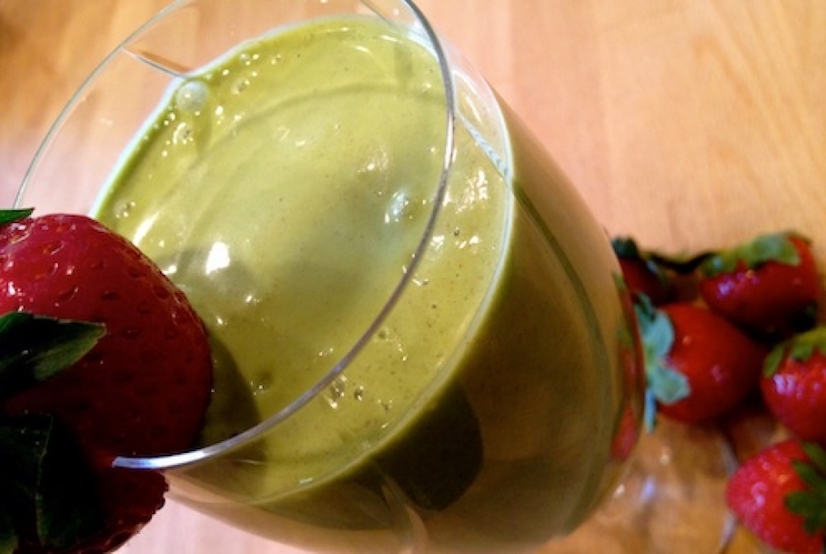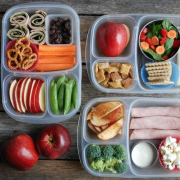Low-carbohydrate (low-carb) diets have been around for decades and continue to gain mainstream popularity as most people who go on these diets tend to experience rapid and substantial weight loss. If you’ve ever dieted before, at some point or another, I’m sure you’ve cut carbohydrates from your diet and ultimately lost a lot of weight. I’ll bet you later regained the weight too—That is, once you reintroduced carbs back into your diet.
Related Article: What You Should Know About Carbs and the Glycemic Index
When you lose weight and gain it all back this way, it’s really easy to fall for the common belief that carbs themselves are the mortal enemy of weight control. False logic! Truth is, some carbs are more beneficial than others and choosing the right kinds can actually support your weight loss efforts. So as not to overly complicate things, here I’ve compiled a quick list of tips for achieving successful and sustained weight loss without significantly cutting your carb intake.
Pile on the Non-Starchy Vegetables
Non-starchy vegetables are at the very top of the list of weight loss-promoting carbs. Such veggies include leafy greens, asparagus, peppers, mushrooms, beets, carrots, and onions. These vegetables are all rich in dietary fibers, essential micronutrients and antioxidants that collectively aid in maximizing fat burning while also supporting overall good health. Non-starchy veggies are also remarkably low in calories and incredibly versatile making them a great complement to any meal.
So, go ahead and enjoy three, five or more servings every day if you wish!
Related Article: Cruciferous Vegetables: Nature’s Secret Weapons to Fighting Cancer
Incorporate a Variety of Legumes into Your Diet
Legumes (dried beans, peas, and lentils) contain countless health-promoting nutrients but it is their high content of plant protein, folate, and dietary fibers that support long-term weight management. Each of these nutrients helps to control blood glucose (sugar) levels in ways that inhibit the storage of body fat as well as the breaking down and burning of existing fat stores.
Since legumes are relatively high in calories, it’s best to limit your general intake to no more than 1-2 daily servings. This shouldn’t be that hard to do as these carbs are amazingly filling.
Related Article: How Different Types of Fiber Affect Your Health
Treat Yourself to Starchy Veggies and Whole Grains
Although often encouraged, the idea of totally eliminating starchy veggies and grains from your diet is not only unrealistic but also unnecessary. Whether you enjoy eating potatoes, corn or whole grains like oats, bread and rice from time to time, these foods can all support your efforts to lose weight. Starchy vegetables and whole grains are incredibly rich in dietary fibers including soluble fiber and resistant starch, which is known to rev up the body’s natural fat burning capabilities.
Simply limit your consumption of these foods to 3-5 servings a day and you’ll be fine!
Related Article: Resistant Starch: The Friendly Starch That Wards Off Disease
Eat Fruits in Sensible Portion Sizes
Although fruits are generally rich in dietary fibers and a range of vital micronutrients you must be cognizant of how much you consume on a daily basis. While most fruits are low in calories, they contain large amounts of natural sugar, which can present a problem, particularly if they’re consumed in excess. Believe it or not, sugar is more of a culprit to weight gain than fat!
To reap the weight loss benefits of fruit, eating 2-4 daily servings is ideal. A serving constitutes, 1/2 cup of fresh, canned or juiced fruit, 1 small whole fruit (the size of a plum) or 1/4 cup of dried fruit.
Related Article: Dietary Sugar: The Good, The Bad and The Unnecessary
Avoid Eating Refined Carbs at All Costs
Refined carbs like white bread, cereals, chips, candy, cookies and soft drinks are highly processed, often high in empty calories, sugar and unhealthy fats, and basically devoid of nutrients so they really have no place in anyone’s diet. Not to mention the fact that they drive food cravings, which can surely lead to weight gain.
But, weight gain is actually the least of your worries!
Eating refined carbs is known to drastically increase the risk of virtually every chronic disease from diabetes to heart disease to cancer. So if your health is important to you, it’s best to avoid them or eat them in extreme moderation.
Related Article: Tip to Dieters: Beware of Empty Calorie Foods
At the end of the day, following these simple tips for choosing the right types of carbs can greatly support your weight loss efforts. Still, it’s also important to understand that unhealthy weight gain and other health problems can arise when too many carbohydrates are consumed too often.
To achieve successful weight loss while eating carbs you’ll need to always monitor your intake. You can do this easily by familiarizing yourself with food labels and tracking the serving sizes, calorie counts, and nutrient contents for any and all carb-rich foods and beverages you consume.
Related Article: Simple Strategies for Deciphering Food Labels







